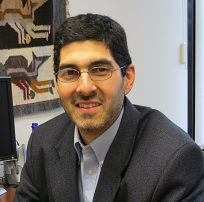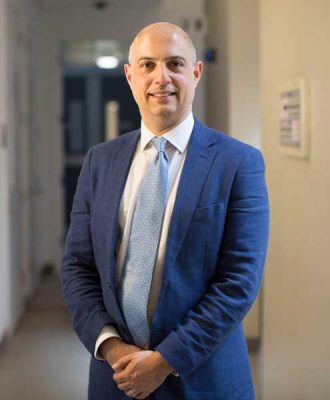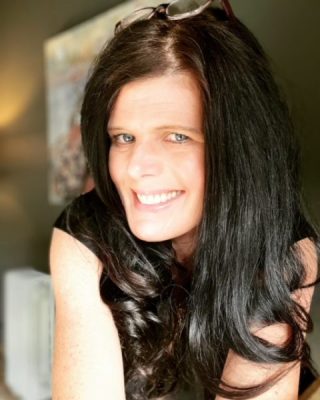Unlocking the Mystery of Unexpected Lucidity
Opinion Advocates for ideas and draws conclusions based on the author/producer’s interpretation of facts and data.
By Adam Stone
Have you ever heard of terminal lucidity?
If the answer is no, that makes two of us – at least before I began to explore the miraculous phenomenon last week.
As it turns out, people suffering from severe dementia or other neurological conditions can experience a sudden, remarkable spark of mental clarity and a resurrection of personality, often (but not always) just before dying.
It frequently lasts for only a few hours.
Some call it “the rally,” “paradoxical lucidity” or just plain “lucidity,” but no matter the name, the related implications and questions are astonishing to consider.
(The mental clarity, frequently emerging at the end of life, can also occur in people with serious psychiatric disorders.)
Questions

Why do memories sometimes return as the body prepares to die?
Does sudden lucidity reinforce the notion that brain activity and consciousness are even more distinct from each other than many assume?
How does this topic connect to the universality of near-death experiences, a topic I explored in a three-part series last year?
Whether the answers to these questions and many others are scientific or spiritual in nature – or if truth resides at the intersection of the two, which is my view – the bottom line is that a richer understanding could lead to transformative advancements in healthcare, especially in areas like Alzheimer’s research.
Last Friday I interviewed Dr. Basil Eldadah, supervisory medical officer at the National Institute on Aging (NIA). Eldadah, over the past half-dozen or so years, has been spearheading scientific efforts on this topic.
But before connecting with Eldadah last week, I wanted to talk to someone local who might have witnessed these occurrences firsthand.
Witness
I cold-called Sarah Johnson, coordinator of senior services at the Pleasantville Senior Center, last Wednesday afternoon.
Johnson has been working with seniors for 15 years in various capacities, at Atria senior living in Ossining, at Maryknoll Sisters and at a skilled nursing facility in Connecticut.
I basically phoned her on a lark, half wondering if my questions about a somewhat obscure topic would make any sense.
But within seconds, Johnson was excitedly corroborating the nature of the phenomenon.
“Right before they pass, they have, like, these moments and bursts of complete understanding and remembering, and it happens right before they pass away,” Johnson told me of senior citizens she’s worked with in the past. “It’s wild.”
At Maryknoll, for instance, Johnson saw an elderly sister regain lucidity shortly before dying, one of the many times she’s watched the phenomenon unfold before her eyes.
“She was having a hard time remembering things, and then all of a sudden, she flipped the switch and she remembered stuff,” Johnson recounted.
Light-Bulb Moment
It happens to people who for years have been lost in a deep sea of memory loss, unable to summon names, dates or even what they ate for breakfast.
“But then,” Johnson said, “all of a sudden, the next day, they’re remembering all of their family’s names, their old former pets’ names, stories that have happened to them, lyrics to songs.”
I asked various local friends and acquaintances last week if they were familiar with the experience and also poked around online for stories.
Several people shared anecdotes about their own loved ones near death, recounting instances of bed-ridden family members rising from their stupor, displaying their old personalities, feasting on big meals and even seeing relatives who had already passed away.
As for Johnson, she isn’t inclined to link terminal lucidity – a term of art she hadn’t heard of before either – to any spiritual dimension, and is more apt to point to the fact that the “brain is so super complex.”
I did ask her what the phenomenon is like to witness?
“It’s like a light bulb that’s been off for years turns on,” Johnson replied.
And then, often within a couple days or much less, the light bulb flickers out, and people pass away.
In other words, the reemergence of lucidity frequently foreshadows imminent death.
Meet the Doctor
Eldadah oversees translational and clinical research in various areas related to older adults, including palliative care, symptom management and geriatric oncology.
In our Zoom interview late last Friday afternoon, Eldadah shared the origin of how this research earned federal attention and funding.
In about 2015, Eldadah read a press report about someone who witnessed terminal lucidity in a relative.
“For somebody to have end-stage dementia, be nonverbal, quite disabled, generally pretty noncommunicative and to suddenly have this kind of awakening, this brief temporary awakening, and then shortly afterwards die, obviously just sets up a lot of questions,” Eldadah recalled.
The topic piqued his interest.
By the summer of 2018, NIA organized a workshop with experts from various fields to discuss scientific evidence and formulate research questions on paradoxical lucidity in late-stage dementia.
“Paradoxical lucidity is the kind of phenomenon that can reshape our views of cognitive impairment and dementia if we can understand more about it,” Eldadah wrote in a 2019 article.
NIA launched funding opportunities in 2020 for further research, and a half-dozen separate studies were born, with about $2 million in federal money allocated toward the projects.
Fruits of Labor

The six NIA-financed studies involve observing and analyzing episodes of lucidity, defining and understanding caregiver perspectives, exploring communication experiences, creating a computerized assessment tool, studying severe end-stage dementia and measuring lucidity prevalence in people with dementia and neurological disorders.
I asked Eldadah about his most ambitious hopes for the ongoing research by scientists from across the country.
“Well, I think probably, like a medium hanging fruit is to be able to capture this as it happens, both with video recordings, audio recordings and neurophysiological recordings,” he replied.
Interestingly, the researcher who is leading that effort – NYU Langone’s Dr. Sam Parnia – is an expert I interviewed last year about his groundbreaking work on the genuine nature of near-death experiences, also known as NDEs.
Parnia has helped illustrate how NDEs are distinct from dreams or hallucinations.
“When you have that kind of documentation in hand,” Eldadah said of Parnia’s work on trying to record lucidity, “it’s really difficult to dismiss not only from just kind of seeing it visually and verbally, but to actually see some of the underlying neurophysiological measurements.”
I wondered if there was any overarching connection between the study of lucidity and inquiry around near-death experiences.
“Yeah, so this phenomenon does prompt the question, well, when somebody who has end-stage dementia has this manifestation of lucidity, where did they just come from?” Eldadah said. “Where are they? Who is in there and who is experiencing it? And what is that experience like? These are questions about the nature of consciousness. Again, I think that’s a question that’s been asked for millennia.”
Wordplay
Eldadah also touched on the difficulty of even defining the terms. Terminal lucidity is an imperfect phrase because the general phenomenon is not always connected to looming death.
(That said, perhaps there are multiple phenomena at play, and the one linked to the death experience could possess unique characteristics.)
The phrase paradoxical lucidity has also proven imprecise.
“I think a significant implication [of the research] has been a revisioning of how we see dementia as a disease characterized by a relentless decline in function to a disease that has periodic moments of lucidity, meaning that this is not something that is considered paradoxical anymore,” Eldadah explained.
At the end of the day, Eldadah favors just calling it simply “lucidity,” defining the phenomenon as the “return of mental clarity.”
Benefits
Recognizing the occurrence of lucidity can help enrich the relationships families maintain with their loved ones living with dementia.
“We also have heard (of) some data indicating that for some people, they’ve completely changed the way they think about an individual with dementia from kind of like an empty shell of an individual to somebody who actually does have a consciousness in there and should be treated as such,” Eldadah said.
But if that conclusion is the low-hanging fruit, what longer-term benefits might emerge?
“Maybe a little more long-reaching implication of the research is that it may identify ways in which we can treat dementia, because if we understand how it is that consciousness seems to manifest itself more clearly in these moments of lucidity, we understood that process,” Eldadah said. “Could we somehow do something to replicate that or to bring about greater amounts of lucidity, or somehow be able to connect with individuals who have dementia?”
That hopeful signal comes at an exciting time in Alzheimer’s research.
For instance, “60 Minutes” reported less than two weeks ago about revolutionary ultrasound therapy led by Dr. Ali Rezai that shows promising results in reducing beta-amyloid plaque, which is associated with Alzheimer’s.
‘Transfigured and Spiritualized’
German biologist Dr. Michael Nahm elevated study of the lucidity experience about 14 years ago after discovering case studies in 18th and 19th century medical reports.
He published an article in 2009, introducing “terminal lucidity” to the broader science world.

Incredibly, near-death states can produce a level of clarity that people with severe mental illness have never experienced in their lives, Nahm and Dr. Bruce Greyson observed in a paper they published about a decade ago titled “The Death of Anna Katharina Ehmer: A Case Study in Terminal Lucidity.”
Ehmer, a German woman with severe disabilities living at the Hephata mental institution, had never uttered a word in her life.
But one remarkable day, for about 30 minutes, Ehmer was infused with a rush of lucidity and began belting out soulful songs.
It was Mar. 1, 1922, and the 26-year-old died after she was done singing.
“Her face, up to then so stultified, was transfigured and spiritualized,” Friedrich Happich, the institution’s director, is quoted as saying in Nahm and Greyson’s article, citing contemporary correspondence. “Then, she quietly passed away. Like myself and the nurse who had cared for her, the physician had tears in his eyes.”
The experience also left a lasting mark on Wilhelm Wittneben, the psychiatric institution’s chief doctor.
“…Under certain circumstances, such as during diseases and especially in the hour of death, a revival of slumbering mental faculties takes place in apparently quite deranged imbeciles,” Wittneben wrote at the time.
Related Research
Just this past May, researchers affiliated with the University of Michigan investigated brain activity during the death process, analyzing electroencephalograms of four dying patients.
“Two of the four patients exhibited a rapid and marked surge of gamma power, surge of cross-frequency coupling of gamma waves with slower oscillations, and increased interhemispheric functional and directed connectivity in gamma bands,” the study found.
Put another way, the research helps show how the dying brain can display a burst of activity, and evidence of heightened consciousness.
Researchers had already observed the phenomenon in animals. In 2013, scientists found that rats exposed to a heart toxin experienced increased synchronized brain activity, and similar observations were made in a 2015 study involving rats being killed by suffocation.
This fact pattern should prompt contemplation about the most profound questions humans wrestle with over the nature of life and death and the potential transcendence of spirit.
Dialogue about whether consciousness persists after biological death feels like an inescapable extension of any conversation surrounding the dying brain’s ability to exhibit heightened activity.
‘Preparing Themselves to Die’
Parnia, the NYU Langone critical care physician and near-death experience expert, unveiled findings last year from a study that featured brain monitors reviewing signs of lucid consciousness in patients who had experienced cardiac arrest.
“The brain was flatlined, but eventually, at some point in 40 percent of them, we actually saw signs of lucid brain activity, which actually validates what people have said for years, that they’re having a real lucid experience as they’re going through life and death,” Parnia told me in our phone interview last year. “That’s the first thing that was important. We found basically a brain marker that validated millions of people’s testimonies.”
His work challenges traditional notions of a rigid boundary between life and death, highlighting the brain’s activity during the dying process.
The doctor elaborated on his thoughts about lucidity emerging in people as they’re about to pass away for an article published last June in the Scientific American.
“It’s almost like they’re preparing themselves to die,” Parnia stated.
Stats about unexpected lucidity are hard to come by but a hospice nurse with a popular YouTube channel posted a video last May estimating how she and her colleagues witness terminal lucidity in a full one-third of patients. (She also talks in the video about her own grandmother’s deathbed rally, and separately notes how the phenomenon was showcased accurately in an episode of “Grey’s Anatomy.”)
‘Chipping Away’
At the end of the day, what I find most fascinating with these types of topics is trying to unravel what various mysterious phenomena tell us about the nature of life and death.
I asked Eldadah how his immersion in the subject might have reshaped his general view of reality.
“I think what it’s done is it’s just probably humbled me even more to realize that there’s just a lot that we don’t know,” the doctor said. “And it’s also, I think, exciting that there’s a big world out there and we’re chipping away at understanding it.”
Because science is the study of the measurable, and matters of consciousness are inherently elusive to measure, I took my big-picture question to area resident Kristin Raniola, founder of Noelle Healing in Pound Ridge.
This past weekend, I visited Raniola for a second time to experience Reiki, after writing a piece about the extraordinarily effective Japanese practice late last year.
Soul Searching
Raniola struck me as the perfect person to help explain why a person without the ability to remember anything for years might enjoy a deep flow of consciousness in the moments before death.
“As an energy healer, I would say the soul remembers and knows what the body/mind forgets,” she told me in a text exchange last week.
But what is it about impending death that might help facilitate the return of memories?
“What happens is the soul emerges in its fullness and stops relying on the mind,” she said.
Any open and honest deep dive into related phenomena reveals an exquisite logic to Raniola’s poetic summation.
I personally believe she’s spot on.
Adam Stone is the publisher of Examiner Media. E-mail him with tips and feedback at astone@theexaminernews.com.

Adam has worked in the local news industry for the past two decades in Westchester County and the broader Hudson Valley. Read more from Adam’s author bio here.
